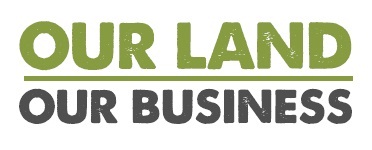Source: The Citizen
July 16, 2020
P.K.Balachandran
Bid to make land “marketable”
The latest report by the US-based Oakland Institute shows how West-backed schemes to make land marketable in the developing countries are hurting the interests of the underprivileged local communities there.
The Oakland Institute’s report entitled “Driving Dispossession: The global push to unlock the economic potential of land” begins by saying: “Many governments around the world have been prompted to adopt the Western capitalist notion of private land ownership. This includes the creation of land markets so that land can be leased or sold and put into so-called productive use to unlock its value.”
There is hunger for land among capitalists across the world because it is a very scarce commodity. Man has access only to 149 million sq.km, or less than 30% of the surface of the earth. And a major part of the land is “not” controlled by private interests but by community interests.
“65% of the world’s land area is stewarded by communities under customary laws including communal ownership. Land is also valued as an ancestral asset with social and cultural significance,” the report points out.
The World Bank is a key actor in the push to privatize and commodify land, the report says. In 2017, the World Bank’s Enabling the Business of Agriculture prescribed the following policies to developing countries: formalize private property rights; ease the sale and lease of land for commercial use; systematize the sale of public land by auction; and improve procedures for expropriation.
The Oakland Institute’s report uses a number of case studies to illustrate the human rights issues arising from making land marketable for capitalist exploitation
“Land For Aid”
In March 2020, Ukraine ended the moratorium on the sale of land that had been there for 19 years in order to qualify for a desperately needed US$ 5 billion loan package from the IMF. The World Bank, along with the European Bank for Reconstruction and Development (EBRD), had been laying the groundwork for the creation of a land market to the benefit of agribusiness and private investors who promise traditional landowners “growth in exchange for access to their land.”
However, farmers, agricultural workers, unions, and the vast majority of the Ukrainian population staunchly opposed the creation of a land market, as this would “allow agribusiness conglomerates, oligarchs, and private foreign investors to increase their already substantial control over land and natural resources in the country,” the report said.
View Full Article at The Citizen

Global Capitalists Ravenous for Land in Developing World
Source: The Citizen
July 16, 2020
P.K.Balachandran
Bid to make land “marketable”
The latest report by the US-based Oakland Institute shows how West-backed schemes to make land marketable in the developing countries are hurting the interests of the underprivileged local communities there.
The Oakland Institute’s report entitled “Driving Dispossession: The global push to unlock the economic potential of land” begins by saying: “Many governments around the world have been prompted to adopt the Western capitalist notion of private land ownership. This includes the creation of land markets so that land can be leased or sold and put into so-called productive use to unlock its value.”
There is hunger for land among capitalists across the world because it is a very scarce commodity. Man has access only to 149 million sq.km, or less than 30% of the surface of the earth. And a major part of the land is “not” controlled by private interests but by community interests.
“65% of the world’s land area is stewarded by communities under customary laws including communal ownership. Land is also valued as an ancestral asset with social and cultural significance,” the report points out.
The World Bank is a key actor in the push to privatize and commodify land, the report says. In 2017, the World Bank’s Enabling the Business of Agriculture prescribed the following policies to developing countries: formalize private property rights; ease the sale and lease of land for commercial use; systematize the sale of public land by auction; and improve procedures for expropriation.
The Oakland Institute’s report uses a number of case studies to illustrate the human rights issues arising from making land marketable for capitalist exploitation
“Land For Aid”
In March 2020, Ukraine ended the moratorium on the sale of land that had been there for 19 years in order to qualify for a desperately needed US$ 5 billion loan package from the IMF. The World Bank, along with the European Bank for Reconstruction and Development (EBRD), had been laying the groundwork for the creation of a land market to the benefit of agribusiness and private investors who promise traditional landowners “growth in exchange for access to their land.”
However, farmers, agricultural workers, unions, and the vast majority of the Ukrainian population staunchly opposed the creation of a land market, as this would “allow agribusiness conglomerates, oligarchs, and private foreign investors to increase their already substantial control over land and natural resources in the country,” the report said.
View Full Article at The Citizen